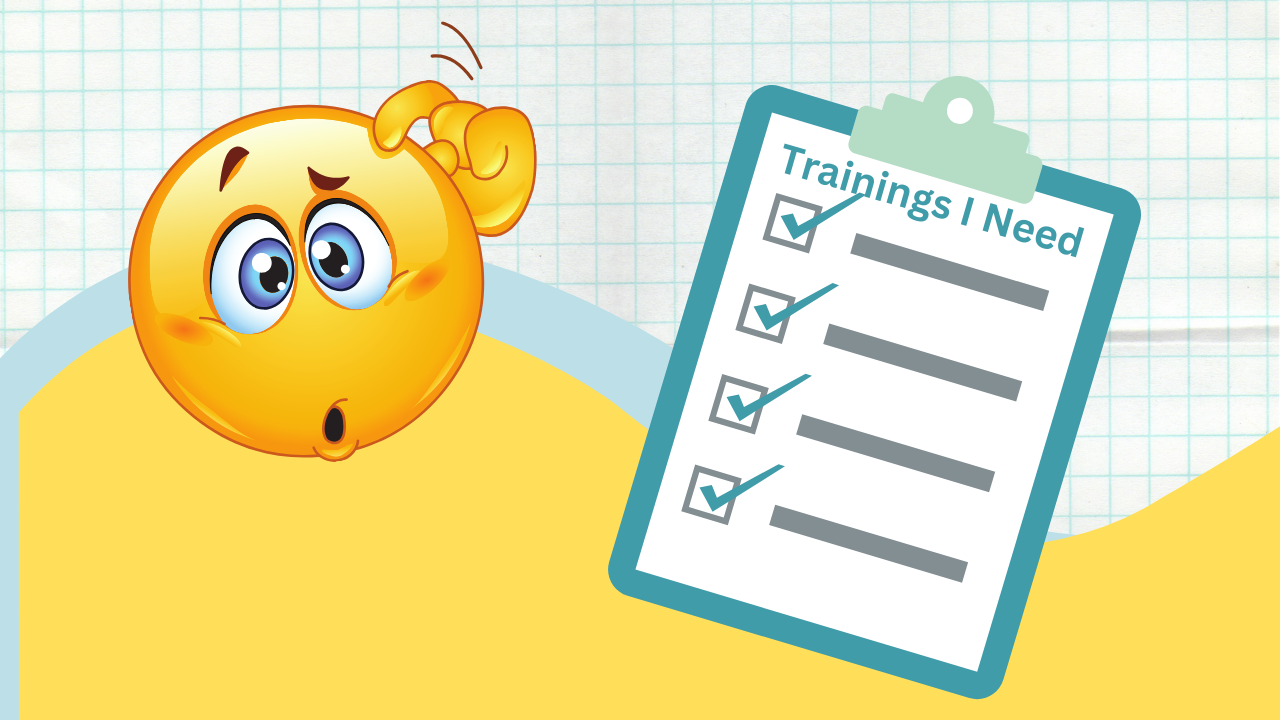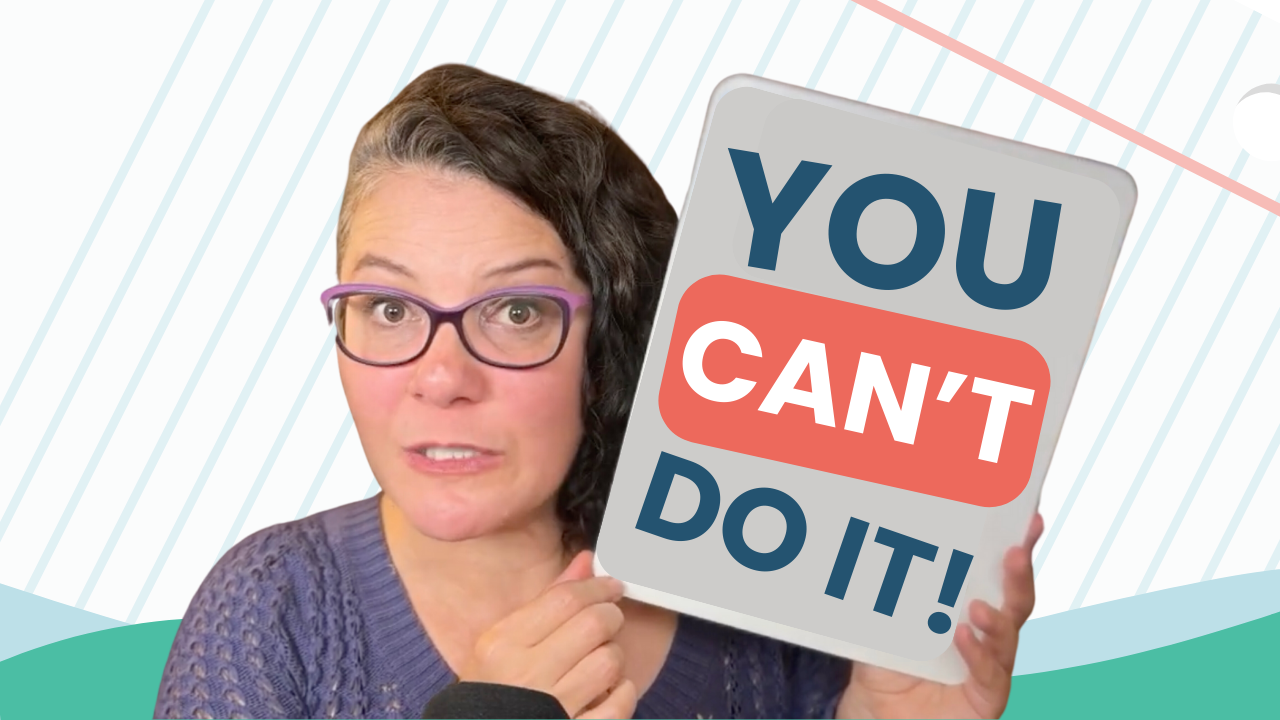Welcome to the
Anti-Boring Blog
What Training Do Academic Coaches Need? Part Two
Are you curious whether you have what it takes to become an academic coach? Maybe you’re a school-based educator hoping to start a side business, or perhaps you want to get one of the new “academic coaching” positions that are popping up in schools and universities around the country?
In Part One of this series, we discussed the least you need to know to be a successful academic coach helping students thrive in school and in life:
Compassionate communication skills, and
Some basic learning theory and a few strategies to put that theory into practice (both study strategies and time management/organization for students)
In the Anti-Boring Learning Lab, we truly believe that these two skills are the minimum necessary for new academic coaches to get started working with students. As a result, we’ve structured all our courses and community calls to help new academic coaches get up and running on those skills as fast as possible.
However, most educators seeking out training as an academic (or ADHD, executive function, or student success coach) want to be more than just decent coaches. They want to deliver great services to students! And serve their students well.
To that end, there are two more skillsets that help new coaches get up and running as fast as possible -- and set themselves up to offer amazing services to help de-stressify school for students.
Before you pay tons of money for in-depth coach training, and after you’ve equipped yourself with the two toolkits listed above, here’s what you need to know next….
What Training Do Academic Coaches Need? Part One
Recently, an educator registered for my free monthly office hours asking a very relevant question -- what kind of training does a person need to become an academic coach?
I love this question because I have a controversial answer: not much!
I know this might seem surprising. Isn’t more training always good? Especially when it comes to caring for our kids? Perhaps. But let’s unpack!
In this two-part blog entry, we’ll share some skills that new academic coaches need, alongside the kind of training that will help you equip yourself with those skills.
Students Don't Follow Through on Commitments?
Whether you are a classroom teacher or academic coach, it can be incredibly frustrating when students don’t follow through on their responsibilities.
Recently, a coach who has been trained in the Anti-Boring Toolkit wrote into our community listserv with a frustration:
I have a client who is super keen when we are working together. She agrees to commitments and assures me that it is not overwhelming, and that everything is clear and doable. She then does not follow through at all—no matter the reminders I send her. Do you all have any other suggestions on how I can have an impact in a way that she begins to see success and wants to do it on her own?
Today I’d like to highlight the excellent responses from the Anti-Boring Certified Coaches on the listserv. As I read through their reflections, I couldn’t help but notice that each one highlighted a different academic coaching skill that we teach inside the Anti-Boring Learning Lab, where we teach the tools and the brain science students need to shift from unmotivated, bored, and struggling students into independent, motivated, self-starting learners.
Which of the following three coaching skills do you need to work on?
Do Schools Teach Students How to Learn?
As I researched education podcasts, I was fascinated to note the kinds of topics that are being discussed in education today: neurodiversity, executive functions, technology and artificial intelligence, social-emotional learning, equity and educational justice, mental health, homeschooling, innovations, and student-centered learning.
These are important topics and I’m glad so many public-facing educators are talking about them. But there is one that feels crucial for educators to be thinking about that was entirely missing from the discussions -- What is that topic?!
Study skills and learning-how-to-learn strategies!
This is the topic students on social media talk about the most. Search for “study hacks” on YouTube shorts, and you’ll see so many videos made by students for students about how to learn efficiently and effectively.
Doesn’t it seem suspect that a topic that students crave is rarely discussed in fancy schmancy educator circles?
Is It a Lack of Motivation Or…? Part 4 of 4
This the fourth and final blog post in our series on student motivation.
I propose that what looks like lack of motivation in students might be something else entirely, and we’ve explored seven different options for what might be going on instead.
First, I proposed four “low hanging fruit” options that are always the first I consider when working with a new student or a new challenge: a brain-based difference, having the wrong tools on hand, lack of clarity about the assignment, and/or a faulty environment.
Second, there is usually a skill weakness contributing to the feeling of lack of motivation, and in the second post in our series I explored three different ways students often need to build their abilities in order to feel more consistently motivated.
Third, I proposed three options from Self-Determination Theory that are often at play when a student complains of lack of motivation: the need for more autonomy, competence, and/or relatedness.
Today we discuss three final “root causes” for feeling unmotivated: Mismatched Rewards, Identity Reframe, and Self-Care.
If you are a teacher, coach, tutor, or educator of any kind, today’s post will help you address lack of motivation in your students.
Is It a Lack of Motivation Or…? Part 3 of 4
As I scanned study after study, I noticed the prevalence of one theory of motivation that seemed to be referenced more than others -- Self Determination Theory.
Good thing that is, because this is the theory of motivation that inspired me eight years ago and is the basis for how I focus my choices as an academic coach. I find it to be super practical, and I’m excited to share my thoughts about it today.
In this reflection, we are going to dive into three challenges to student motivation derived from the psychological framework Self Determination Theory: autonomy, competence, and relatedness.
This is applicable to your work with students, regardless of whether you are a classroom teacher, academic coach, or tutor!
Is It a Lack of Motivation Or…? Part 2 of 4
Motivation Shmotivation! What would happen if we stopped complaining about students not being “motivated” enough -- and instead worked to figure out what is the root issue behind the apparent lack of motivation?!
In the first part of the series, we looked at the four “low-hanging fruit” reasons why a student might appear unmotivated. Before I begin to solve a student’s motivation dilemma, I try to double-check whether the student: (1) has diagnosable brain-based differences, (2) has the right tools for learning, (3) understands the task, and (4) is in an appropriate environment for taking action.
The next most common reason a student might appear unmotivated is that they have a skill weakness that is keeping them from getting started with a task.
There are three key areas in which students have skill deficits that impact their motivation to learn.
These three skill sets are at the center of my Anti-Boring Approach to teaching educators how to coach students. I find that once students better understand what exactly is happening in their brains while they’re learning, they make better choices in their learning.
Is It a Lack of Motivation Or…? Part 1 of 4
The question I get asked most by parents and educators is: how do I motivate unmotivated students?
Sometimes I think the word “motivation” itself is unhelpful, because it feels like we’re talking about something important and specific when actually we’re not.
In fact, I’ve noticed “lack of motivation” often masks eleven different challenges a student could be facing instead.
Le’s examine the first four of those!















